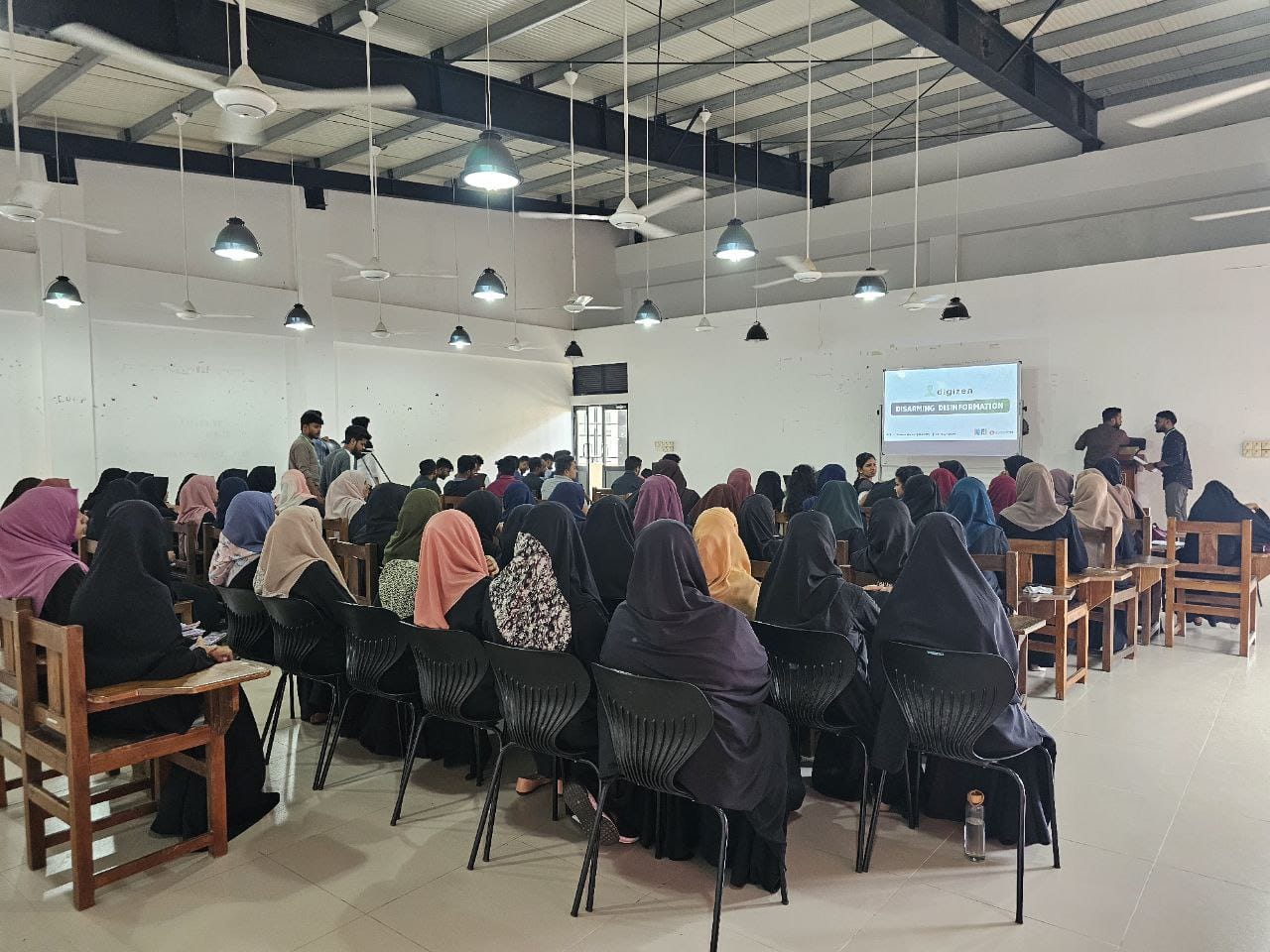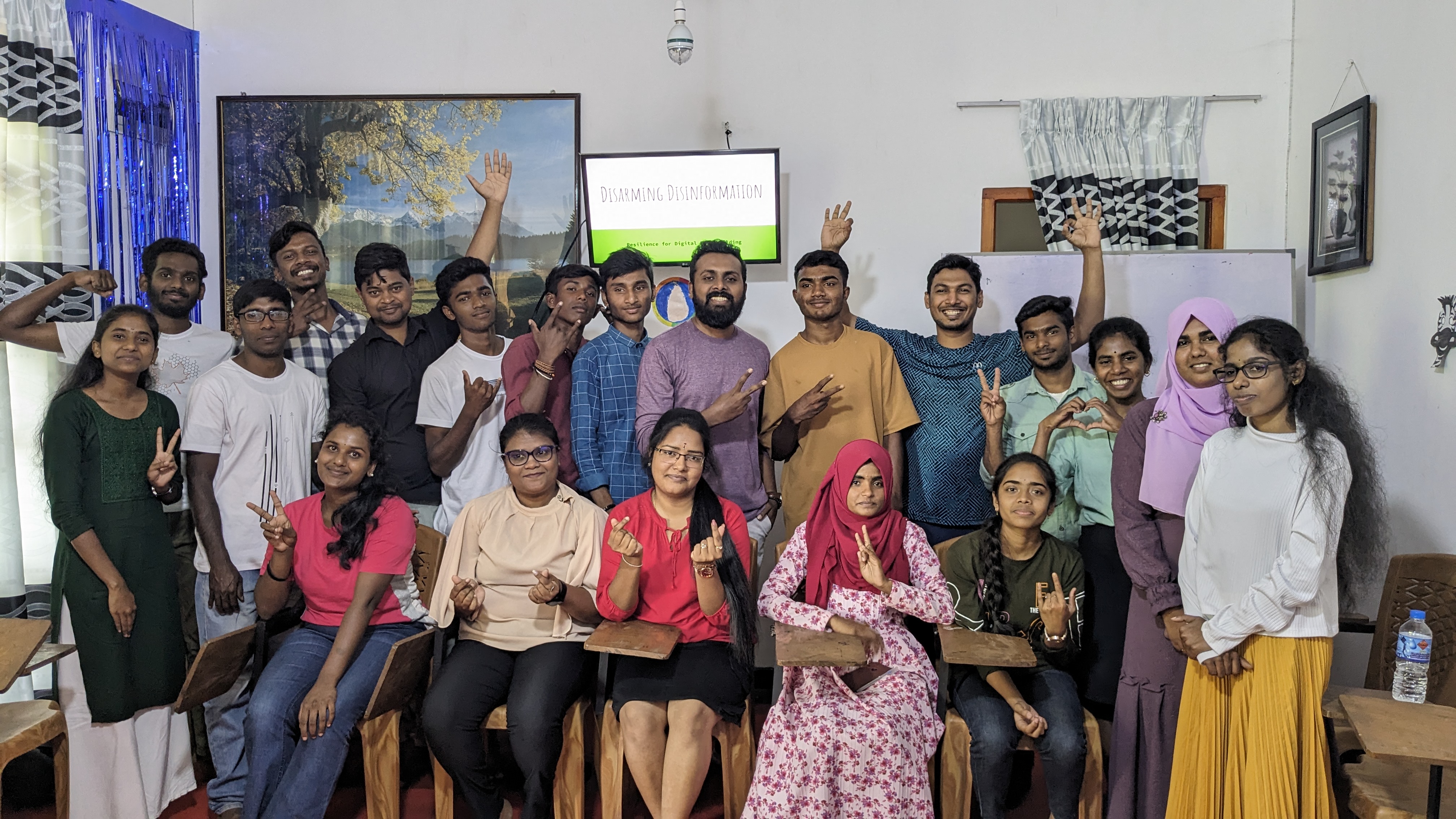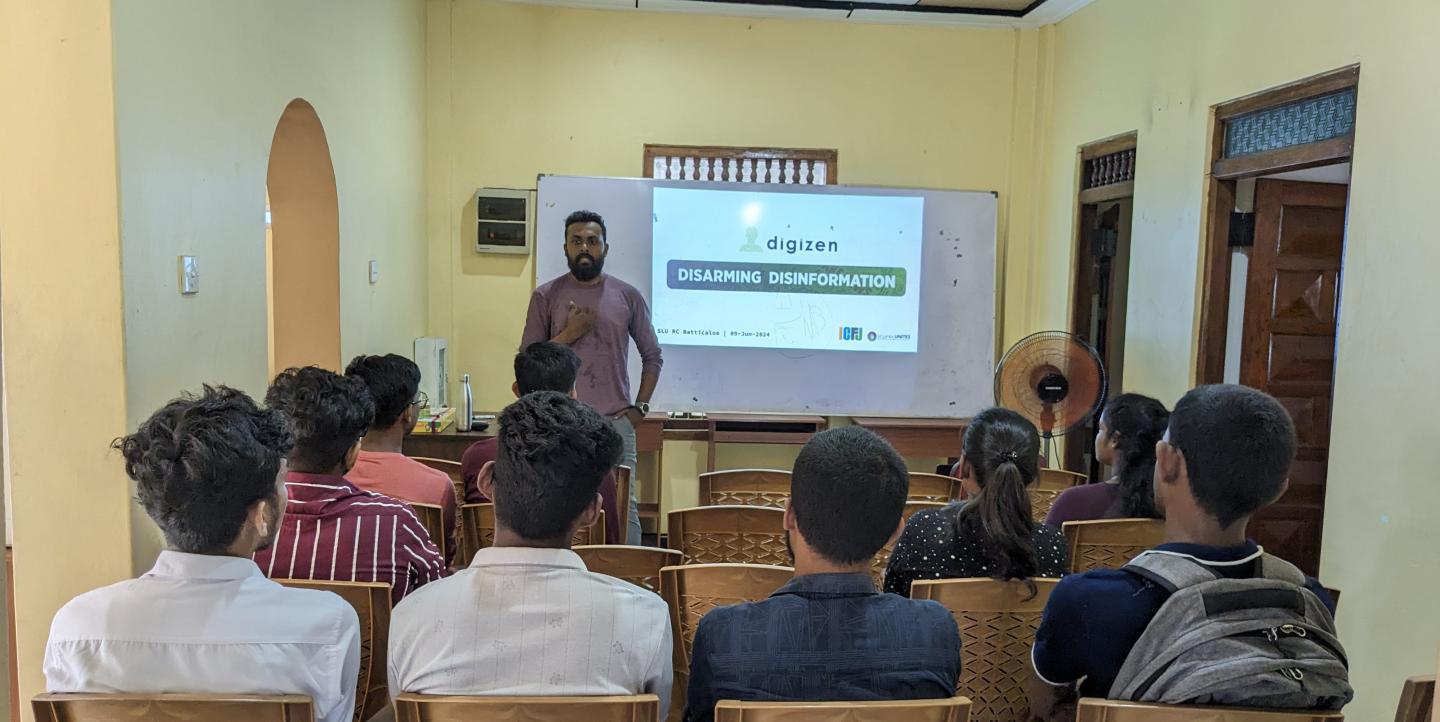The International Center for Journalists’ (ICFJ) Disarming Disinformation initiative is a three-year program, supported by the Scripps Howard Fund, that aims to slow the spread of disinformation through multiple programs such as investigative journalism, capacity building and media literacy education. ICFJ partnered with MediaWise from the Poynter Institute to develop and deliver media literacy programming.
The media literacy training of trainers program accepted global participants for two different cohorts. The participants are community leaders who will educate others on the importance of media literacy and how to apply those skills in real life. The article below is one of five impact stories selected from the first cohort in celebration of media literacy week.
As a peacebuilder in Sri Lanka, Arzath Areeff has witnessed an alarming rise in hate speech and conflict in his country’s digital space. He has seen how individuals have misused the internet and social media to spread false information and incite violence, leading to a rise in friction among citizens.
Areeff felt compelled to stop the strained and fractured relationships that were developing in his country. Drawing on his background in information technology, in 2017 Areeff co-founded digizen, a platform working to support digital peacebuilding, and through which he and his team have promoted media literacy in their community.
It was not until July 2023, however, that he jumped at the chance to enhance his expertise and deepen his knowledge of media literacy in a training offered by ICFJ and MediaWise on the topic.
“I learned not only from the trainers but also from the participants themselves,” said Areeff. “The training helped me improve my methods of engaging the audience and delivering complex content in a relatable and impactful way.”

After completing the training, Areeff set out to educate his community with media literacy skills to help people better discern fact from fiction. He chose to focus on training youth from underserved communities in Sri Lanka’s Central and Eastern Provinces, such as the Malayaga Tamil community. To avoid language barriers, he has conducted his workshops in the participants’ native language.
For Areeff, understanding the local context and engaging participants through interactive methods has been critical. “I was surprised by the lengths some participants went to attend the workshops, with some traveling long distances because they lacked similar opportunities in their areas,” he said.
Grasping the unique sociopolitical and cultural dynamics of the communities Areeff was working with was challenging, but this understanding helped him create relevant and impactful training materials. He researched and met with local youth leaders prior to the workshops to inform the training content so that it better reflected the local context and addressed disinformation issues pertinent to these communities.
“Most participants were surprised by the content, especially since it related directly to the misinformation they encounter daily but often overlook,” said Areeff. “As I walked them through specific examples, participants connected the dots and realized the prevalence of disinformation in their lives.”
Capturing the attention of any audience for two and a half hours is a challenge, and especially so when it comes to young people. To keep the youth engaged, Areeff incorporated a variety of interactive learning methods such as group discussion, role-playing and hands-on activities. In one activity, participants got competitive with one another as they carried out the disinformation debunking task they were presented with — a sign, Areeff took, of how engaged and motivated they were to learn the new skills.
Areeff has been heartened by the multiplying impact his trainings have had, especially in nurturing leadership qualities among the youth. While more than 160 participants directly benefited from the workshops, the indirect impact has proliferated as many participants have shared their new knowledge with friends and family, spreading media literacy and critical thinking skills beyond the initial training group. Some participants have taken on roles as “local ambassadors of truth,” organizing informal sessions to impart what they learned to others. One student organized a small workshop in their village, sharing key insights from the training program and demonstrating fact-checking techniques to peers.
Areeff created a WhatsApp community for participants to further engagement and extend his trainings’ reach and impact. This group has become a space for ongoing support, where members share and verify information together. It has fostered a sense of community and collective responsibility, enabling participants to collaborate in countering disinformation at the grassroots level. The group has created a network of like-minded people who seek facts, helping solidify the relationships built during the workshops and allowing the knowledge gained to have a lasting impact.

Critical thinking is one media literacy skill that everyone should know, Areeff said. It’s essential for navigating today’s digital world, empowering individuals to pause, question and evaluate information before accepting or sharing it.
Since we cannot fact-check all information available, and people in their daily lives may not verify everything they read or receive, the best we can do is to make them more aware of how to spot disinformation in the future.
Building people’s media literacy is the best way to pre- and debunk disinformation. “By cultivating this skill, people can apply common sense and reasoning to discern the accuracy and intent behind the content they encounter online,” said Areeff.
Brittani Kollar and Muskan Bansal contributed to this article.
Main photo courtesy of digizen.lk.

